Introduction to Madinah’s Date Production
Madinah, renowned for its historical and agricultural significance, has recently achieved an unprecedented milestone in date production. According to the latest statistics released by the Ministry of Environment, Water, and Agriculture branch in Madinah, the region has produced an astounding 97.9 million kilograms of dates over the past year. This remarkable yield has not only set a new record but also translated into a substantial economic value exceeding SAR 948,510,913.
The notable increase in date production is a testament to the concerted efforts and advancements in agricultural practices within the region. Madinah’s fertile soil and favorable climatic conditions have long made it a prime location for date cultivation. However, recent technological innovations and strategic initiatives have further accelerated the growth and efficiency of this vital sector.
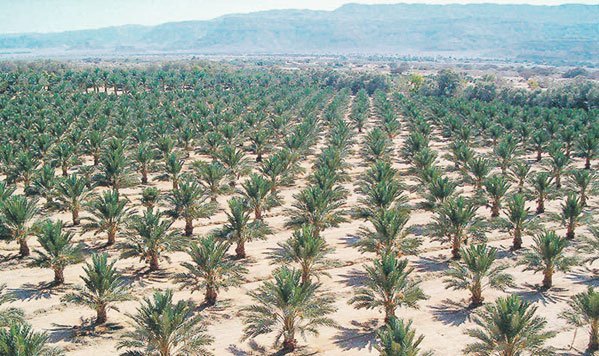
The surge in date production carries significant implications for the region, extending beyond mere economic gains. It underscores the importance of dates as a staple commodity in the local and international markets. Moreover, the success story of Madinah’s date production highlights the region’s commitment to sustainable agricultural development and its ability to meet rising global demands.
This remarkable achievement not only enhances the socio-economic fabric of Madinah but also positions it as a leading hub in the global date industry. As we delve deeper into the various aspects of this record-breaking year, it becomes evident that the impact of Madinah’s date production extends far beyond its borders, contributing to food security, cultural heritage preservation, and economic diversification.
Varieties and Their Nutritional Value
Madinah is renowned for its diverse array of date varieties, each with unique characteristics and nutritional profiles. The region cultivates an impressive 28 different varieties, contributing significantly to both the local diet and economy. Among these, the Ajwa date stands out, not only for its historical and religious significance but also for its rich nutritional content. Ajwa dates are known for their high levels of dietary fiber, potassium, and magnesium, making them a popular choice for maintaining heart health and supporting digestive function.
Another prominent variety is the Sukkari date, cherished for its sweet taste and soft texture. Sukkari dates are particularly favored for their high glucose content, providing a quick energy boost. They also contain essential vitamins such as Vitamin A and B-complex, which are crucial for metabolic processes and maintaining healthy skin. Similarly, the Khudri date, with its chewy texture and slightly less sweet flavor, is packed with antioxidants and minerals like calcium and iron, contributing to bone health and anemia prevention.
The Medjool date, often termed the “king of dates,” is another variety cultivated in Madinah. Known for its large size and rich, caramel-like flavor, Medjool dates are an excellent source of natural sugars, fiber, and several essential nutrients. They are particularly noted for their high levels of potassium, which helps regulate blood pressure and supports cardiovascular health. Additionally, Medjool dates contain significant amounts of copper and manganese, which are vital for bone development and metabolic functions.
Economically, these date varieties play a pivotal role in Madinah’s prosperity. The cultivation and export of dates contribute substantially to the local economy, providing employment and supporting numerous ancillary industries. The nutritional benefits of these dates also enhance the overall health of the population, making them a staple in the regional diet. The diverse range of date varieties ensures that there is a type to suit every palate and nutritional requirement, further cementing Madinah’s status as a key player in the global date market.


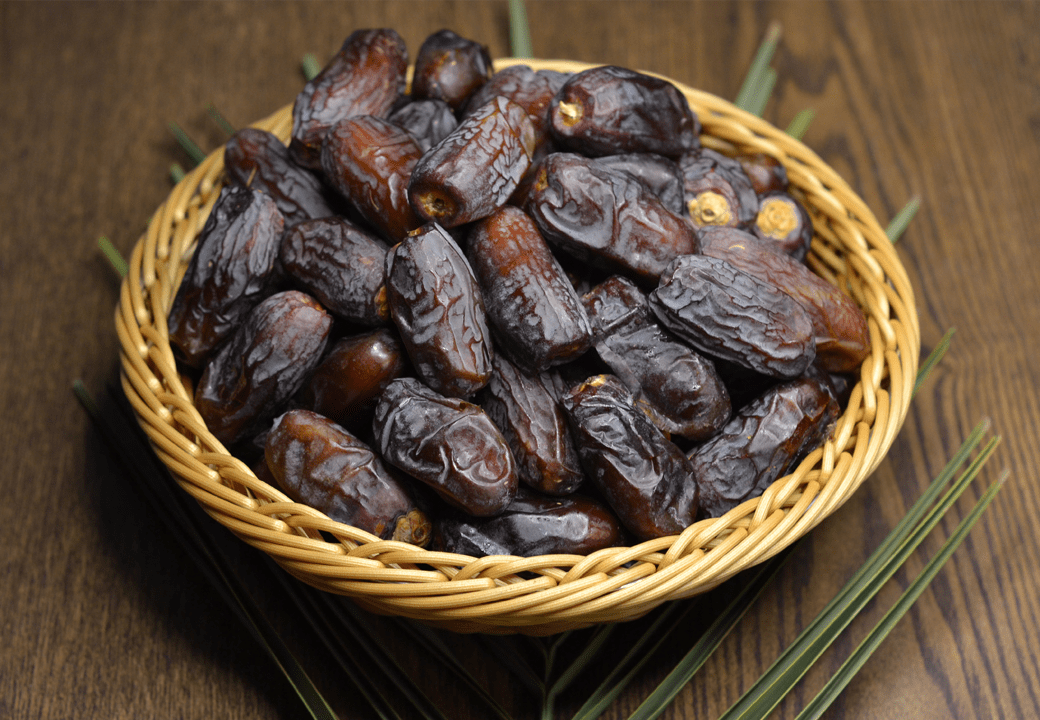
Farming Practices and Regional Benefits
Madinah’s date cultivation spans over an impressive 26,000 farms, each employing advanced farming practices to yield record-breaking harvests. These farms utilize modern agricultural techniques, including precision farming and drip irrigation, to maximize productivity while conserving resources. Precision farming allows for the efficient use of fertilizers and pesticides, targeting only the areas that need them, thereby reducing waste and environmental impact. Drip irrigation, on the other hand, ensures that water reaches the roots of the date palms directly, minimizing water loss and promoting healthier plant growth.
Furthermore, farmers in Madinah have adopted the use of high-quality seedlings and tissue culture techniques to produce superior date varieties. These methods not only enhance the quality and yield of the dates but also ensure the sustainability of the farming practices by reducing the dependency on traditional propagation methods that may be less efficient. The implementation of these advanced techniques has been instrumental in achieving the extraordinary output seen in 2024.
The benefits of these farming practices extend beyond the agricultural sector, significantly impacting the local economy and community. The flourishing date industry in Madinah has created numerous job opportunities, from farm laborers to roles in processing, packaging, and distribution. This employment boost has contributed to the economic stability and growth of the region, providing livelihoods for many families.
Additionally, the focus on sustainable agricultural practices has fostered greater environmental stewardship among farmers. By minimizing the use of chemical inputs and optimizing water usage, Madinah’s date farms are setting a benchmark for environmentally responsible farming. These practices not only safeguard the natural resources but also ensure the long-term viability of the date farming industry in the region.
In summary, the advanced farming practices employed in Madinah have not only led to record-breaking date production but have also brought substantial economic and environmental benefits to the region. The combination of innovative techniques and sustainable practices stands as a model for other agricultural sectors globally.
Future Prospects and Challenges
As Madinah celebrates a record-breaking year in date production, the region’s future prospects in this industry are both promising and challenging. One of the primary challenges that could impact future production is climate change. Increasing temperatures and unpredictable weather patterns could adversely affect date palm cultivation, leading to potential declines in yield and quality. Effective climate adaptation strategies will be crucial for sustaining the industry’s growth.
Water scarcity is another significant concern. Date palms are relatively drought-resistant, but they still require substantial amounts of water, especially during the fruiting period. With the growing demand for water resources across various sectors, the date farming industry in Madinah must adopt more efficient irrigation techniques and explore sustainable water management practices. These measures are essential to ensure the long-term viability of date production in the region.
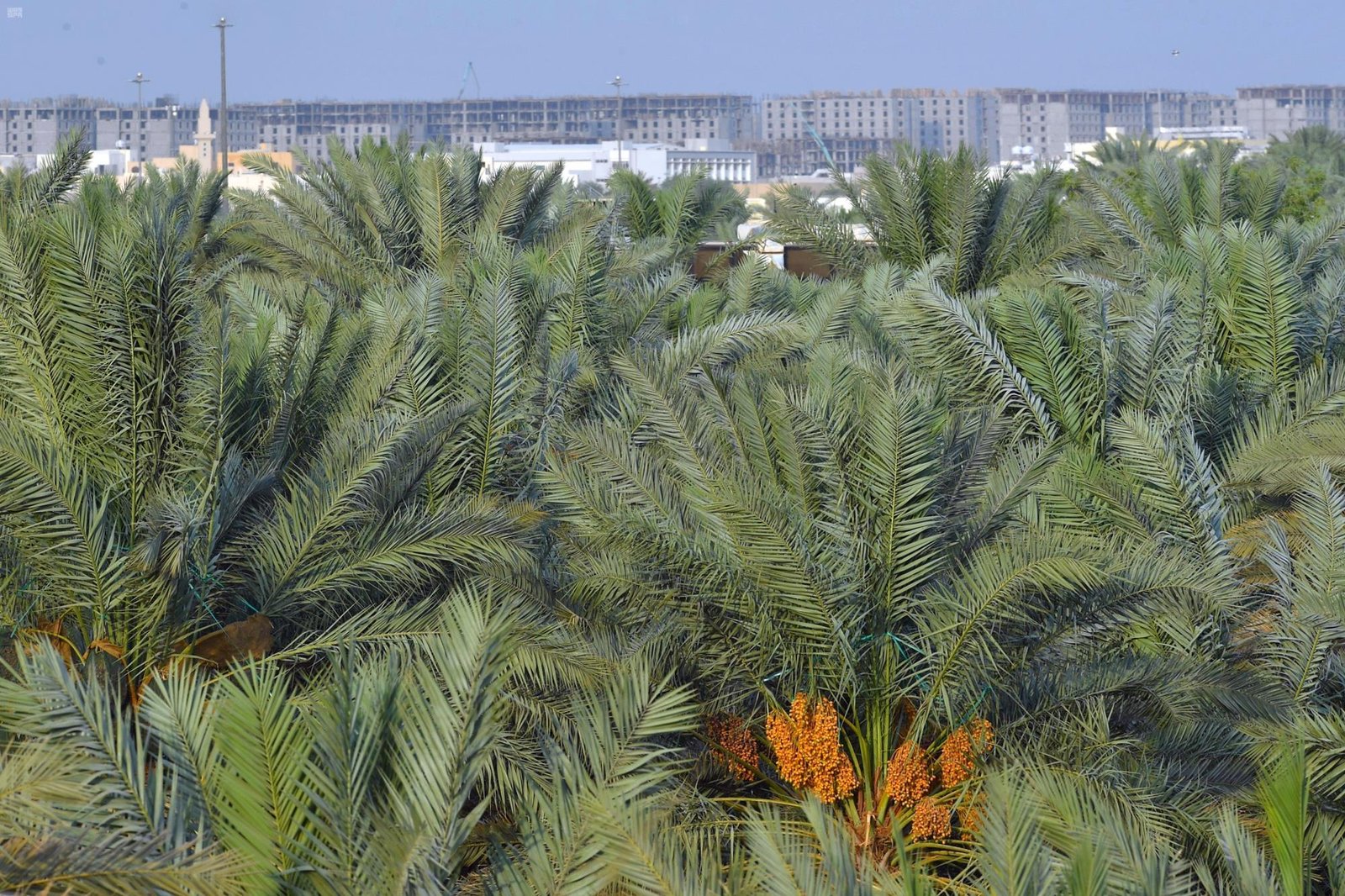
Market competition also poses a challenge for Madinah’s date producers. As global demand for dates increases, producers in other countries are likely to ramp up their production, potentially leading to market saturation. To stay competitive, Madinah’s date industry needs to focus on differentiating its products through quality and branding. The region’s dates are already renowned for their unique taste and texture, attributes that can be leveraged to maintain a competitive edge in the global market.
Despite these challenges, there are numerous opportunities for growth and innovation in Madinah’s date production sector. One such opportunity lies in the potential for export expansion. By tapping into new international markets, Madinah can increase its global footprint and boost export revenues. Additionally, the development of value-added date products, such as date syrup, date paste, and date-based snacks, can open new revenue streams and cater to a broader consumer base.
Investment in research and development is also critical. By exploring innovative farming techniques, pest control methods, and post-harvest processing technologies, the industry can enhance productivity and product quality. Furthermore, collaborations with academic institutions and international agricultural organizations can provide valuable insights and resources to drive the sector forward.
While the future of date production in Madinah is not without its challenges, the opportunities for growth and innovation are substantial. By addressing climate change, water scarcity, and market competition head-on, and by capitalizing on export potential and value-added products, Madinah can continue to thrive as a leading producer of high-quality dates.





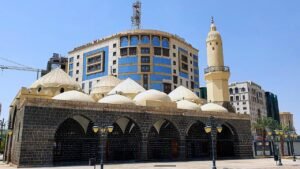














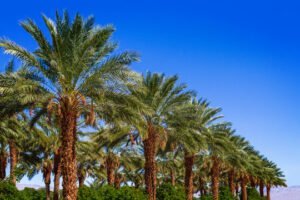






+ There are no comments
Add yours